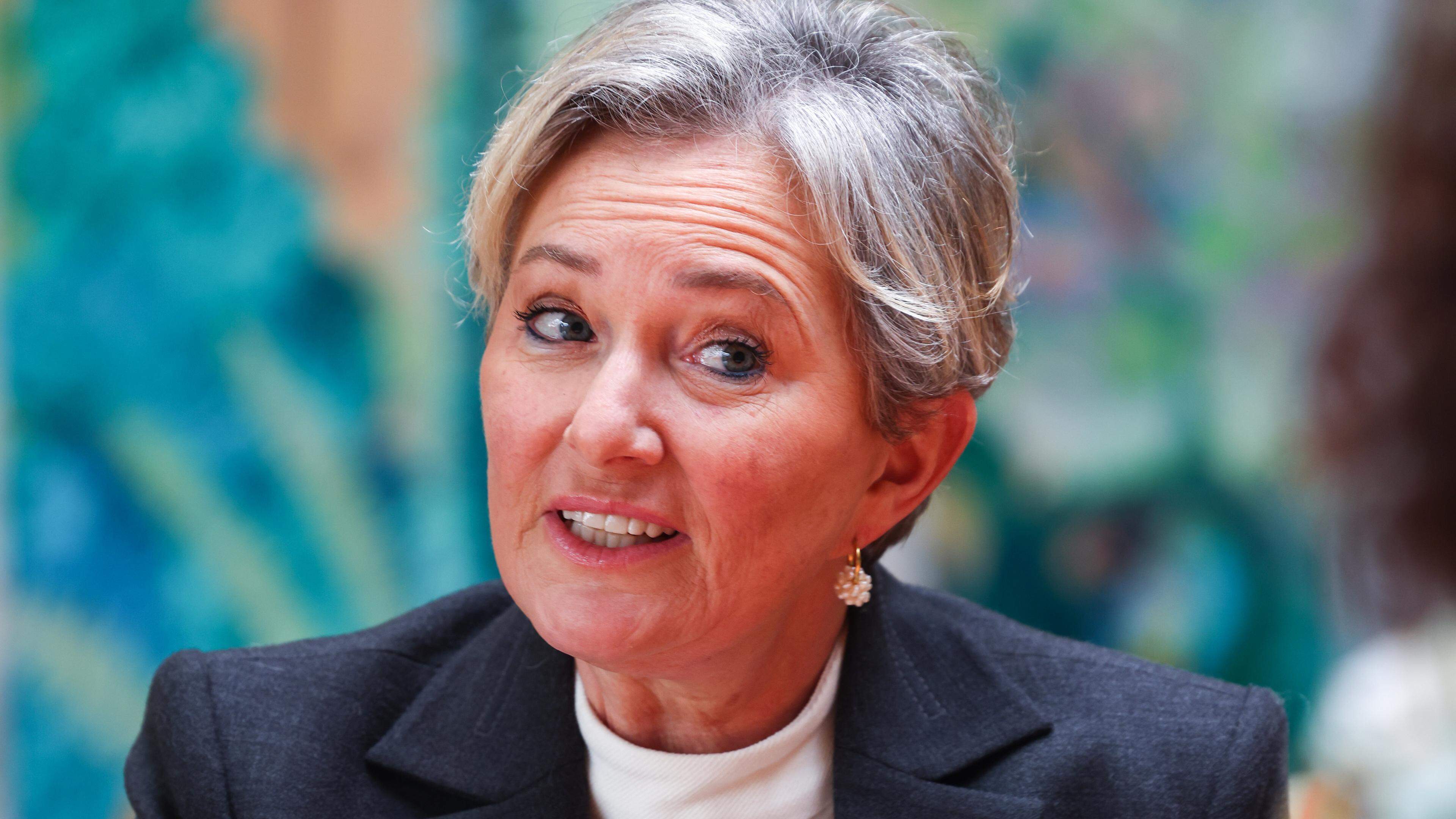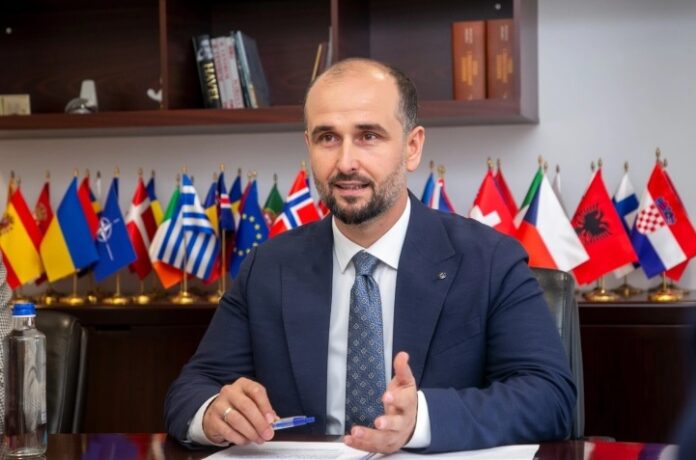The future of the plastic recyclers hangs on a thread
/s3/static.nrc.nl/images/gn4/data131805708-a021dc.jpg)
PlasticRecycler Healix in Maastricht has enough orders to be able to continue until the beginning of August, after which the future of the company is uncertain. It doesn’t look rosy. Eleven fellow recyclers recently went bankrupt. The future of the sector hangs on a thread.
Who will save the plastic recyclers? They have to do that themselves, as it turned out with the appearance of climate plans of VVD minister Sophie Hermans. On Tuesday a mentioned ‘circular plastic table’, a consultation group with representatives from the entire waste and plastic sector.
The outcome is « incredibly important, » says Marcel Alberts of Healix. Because an earlier solution, a so-called additional mixing obligation for recycled plastic, has been canceled, it turned out last week during the presentation of the climate plans. « I got really pissed off when I read that, » says Alberts. « That obligation was so important. »
Because recycled plastic is more expensive than fossil plastic, there is not enough demand for it. The previous cabinet devised an obligation for plastic processors (such as foil makers) to mix recycled plastic with new plastic, but it has now been deleted.
Now it is up to the sector itself to think about how to get out of the crisis. Much depends on the balancing arts of Steven van Eijck, former State Secretary for Finance on behalf of the LPF. On the second-to-last minister’s council of the previous cabinet, he was put forward to honor the circular ambitions. As a ‘quartermaster circular economy’ he leads the discussion.
Heavy -hearted
The headache file Plastic has thus been outsourced by the cabinet to the industry itself. This is probably because policymakers were heavily lobed in every step they tried. The plastic sector consists of long chains with many different players, where the noses are not in the same direction. The question is always: who pays?
Chinese make cheap plastic pellets of Russian oil, the Americans of Shaleie gas
That plastic chain starts with the oil giants. From their oil or gas, chemical companies produce plastick pellets, the building blocks for plastic. The Netherlands has traditionally has a large chemical sector, but that is currently sighing under foreign competition. Chinese make cheap plastic pellets of Russian oil, the Americans of shale gas. They have pushed the price of plastic down in recent years, and therefore recyclers (who also make such grains) cannot compete with new, cheaper material.
Then the processors, companies that make packaging, tubes or plastic bags from those granules. They have the choice: working with new plastic, what a larger co2-To emit, or recycled plastic? The previous government seemed like a good idea to force the processors to incorporate at least 15 percent recycled plastic in their products. But making packaging is a money business: the profit margins are small. If Dutch packers have to use recycled plastic more expensive and not our German and Belgian neighbors, would these companies survive?
Then the brand owners come. Think of Unilever, or Procter & Gamble. Heavy weights that can choose to make their packaging from recycled plastic or not. But, they say, we also compete with each other. Recycled plastic is more expensive, and therefore a bottle of shampoo with recycled plastic too.
CO2-Sting
In fact, even more would be discussed at the plastic table if it had been up to the cabinet. The government put a line through another plan to tax newly produced plastic, and thus responded to worries from a part of the sector that these costs should cough up. The measure came from the tube of the Rutte IV cabinet. The Cabinet Schoof intended in the coalition agreement to introduce the tax from 2028, which would yield the state treasury more than 500 million euros.
Climate minister Hermans suggested last week that the plastic table would come up with alternatives to compensate for the effect of the deleted levy. The cabinet already made its own pass: the CO2-tax for waste incineration companies could be increased. Unless the plastic table came with an alternative.
But the parties at the plastic table refuse to discuss this. « Everyone said: we do not voluntarily take an expensive tax on us, » says Van Eijck. « The plastic industry is already struggling. It is a political problem. Politics has now decided that the waste burners, and therefore in practice the households, will pay a higher waste tax. » The chain puts the ball back at the cabinet.
Supermarkets
The question that the plastic table will discuss is: How should there be a market for the more expensive, recycled plastic? In other words: how should the plastic recyclers be saved?
There is a major role for the companies at the end of the chain, says Van Eijck. Companies that ultimately fill and sell the things in the plastic packaging. Companies such as Unilever and supermarkets such as Jumbo and Albert Heijn. If they dare to make agreements about more recycled plastic on the shelves (in shampoo lessons, food packaging, frozen bags), then you get somewhere. The things in the supermarket will then become a bit more expensive. Are they willing to do so? « Suppose we come out, then we have a market for recyclers, » says Van Eijck. « Then they have viability. »
We have to talk about which pain which sector is willing to take on
He doesn’t just want to look at the companies at the end of the chain. The government can also take more circular purchasing, remove administration costs or make better agreements in Europe. But a large part of the solution will still have to come from the chain itself.
If the table can arrive at agreements that together ensure that twenty to thirty percent of the plastic used is gercycled (purpose of the earlier mixing obligation), then there may be 208 million euros available from the Climate Fund to help the sector more sustainable. Possibly, because Van Eijck has no guarantees about that amount yet.
« We should not only think of what we want, » says Wendy de Wild, director of the municipal waste services. She will also join the plastic table on Tuesday afternoon. « We have to talk about which pain is willing to take on which sector. Because as long as fossil plastic is cheaper than recycled plastic, we will not get any further without pain. »

/s3/static.nrc.nl/wp-content/uploads/2025/05/06083818/web-0605BINwiersma.jpg)
/s3/static.nrc.nl/images/gn4/data131619166-40f86e.jpg)
:format(webp)/s3/static.nrc.nl/images/gn4/stripped/data131545408-a19318.jpg)


